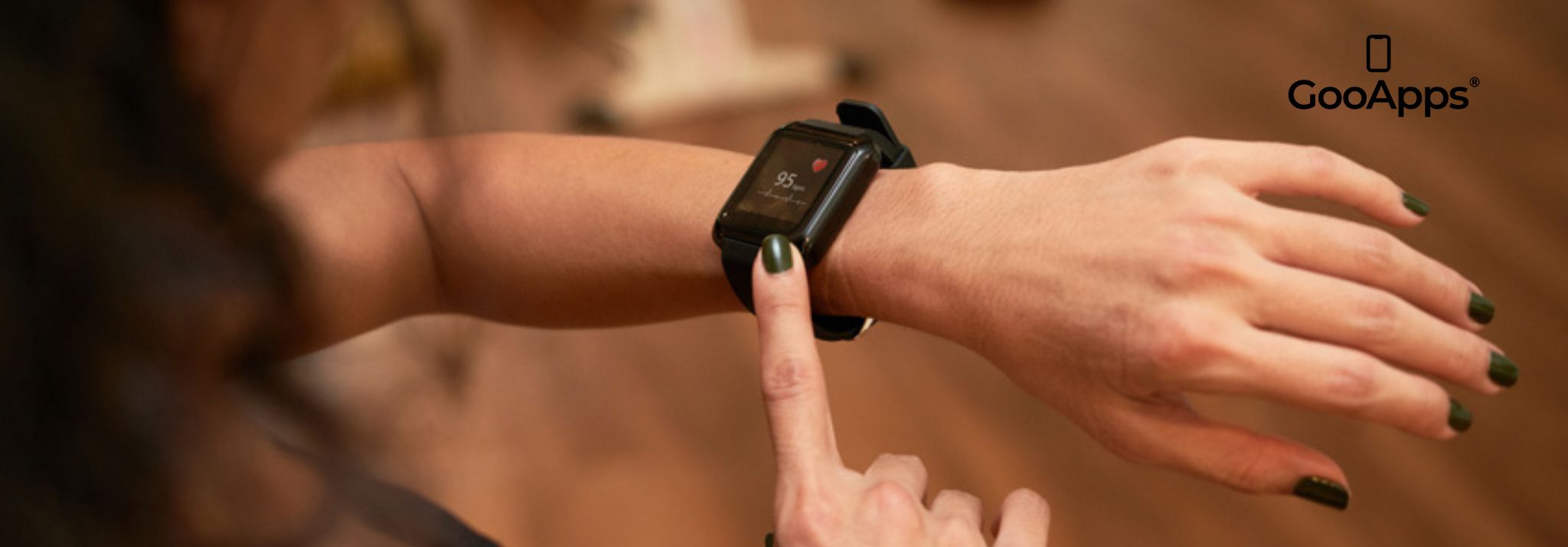Wearables and AI to improve patient health
BHH & MHH member GooApps, a leading developer of digital health solutions, explores how wearables have evolved from basic devices to advanced tools that are transforming healthcare. These electronic devices, designed to collect real-time data on physical activity and health status, have become essential for monitoring parameters such as heart rate, blood glucose, oxygen levels, and sleep quality. Their integration with artificial intelligence (AI) has elevated their capabilities, enabling predictive analysis, personalized recommendations, and more proactive and efficient healthcare.
At GooApps, innovation in wearables spans from smartwatches and rings to electronic patches and biosensors. For instance, smartwatches like the Apple Watch include electrocardiograms (ECG) and fall detection functions, while electronic patches measure vital signs in chronic patients. Biosensors and smart textiles excel in managing conditions like stress and aiding rehabilitation. Additionally, innovations such as robotic prosthetics and haptic devices enhance mobility and sensory interaction.
By integrating AI, GooApps ensures that wearables can analyze large volumes of data, improving precision and personalization. This is reflected in lifestyle recommendations based on individual metrics and early alerts for issues such as arrhythmias or diabetic episodes. Telemedicine also benefits, offering remote consultations supported by real-time data.
Wearables, developed with expertise from companies like GooApps, have significant applications in managing chronic diseases and early risk detection. Continuous glucose monitors (CGM), for example, help diabetic patients manage their condition without frequent finger pricks, while biosensors detect elevated cortisol levels, warning of chronic stress. These features not only improve quality of life but also reduce hospitalizations and emergency-related costs.
However, advancing this technology faces challenges such as data privacy, sensor reliability, and implementation costs. GooApps is committed to strengthening data security, developing more precise sensors, and ensuring devices are accessible to a broader population.
The future of wearables promises smaller, more comfortable, and functional devices integrated with electronic health records (EHR) systems for personalized care. The combination of AI and wearable technology will drive a more preventive and proactive healthcare system capable of anticipating issues before they escalate. Examples like epidermal patches and smart prosthetics highlight the potential of this technology to revolutionize healthcare.
In conclusion, wearables and artificial intelligence—driven by innovators like GooApps—are redefining health management, empowering users, and improving medical system efficiency. Their ability to detect patterns, prevent diseases, and provide personalized recommendations paves the way for a future where healthcare is more accessible, proactive, and focused on comprehensive well-being.
Learn more HERE.


